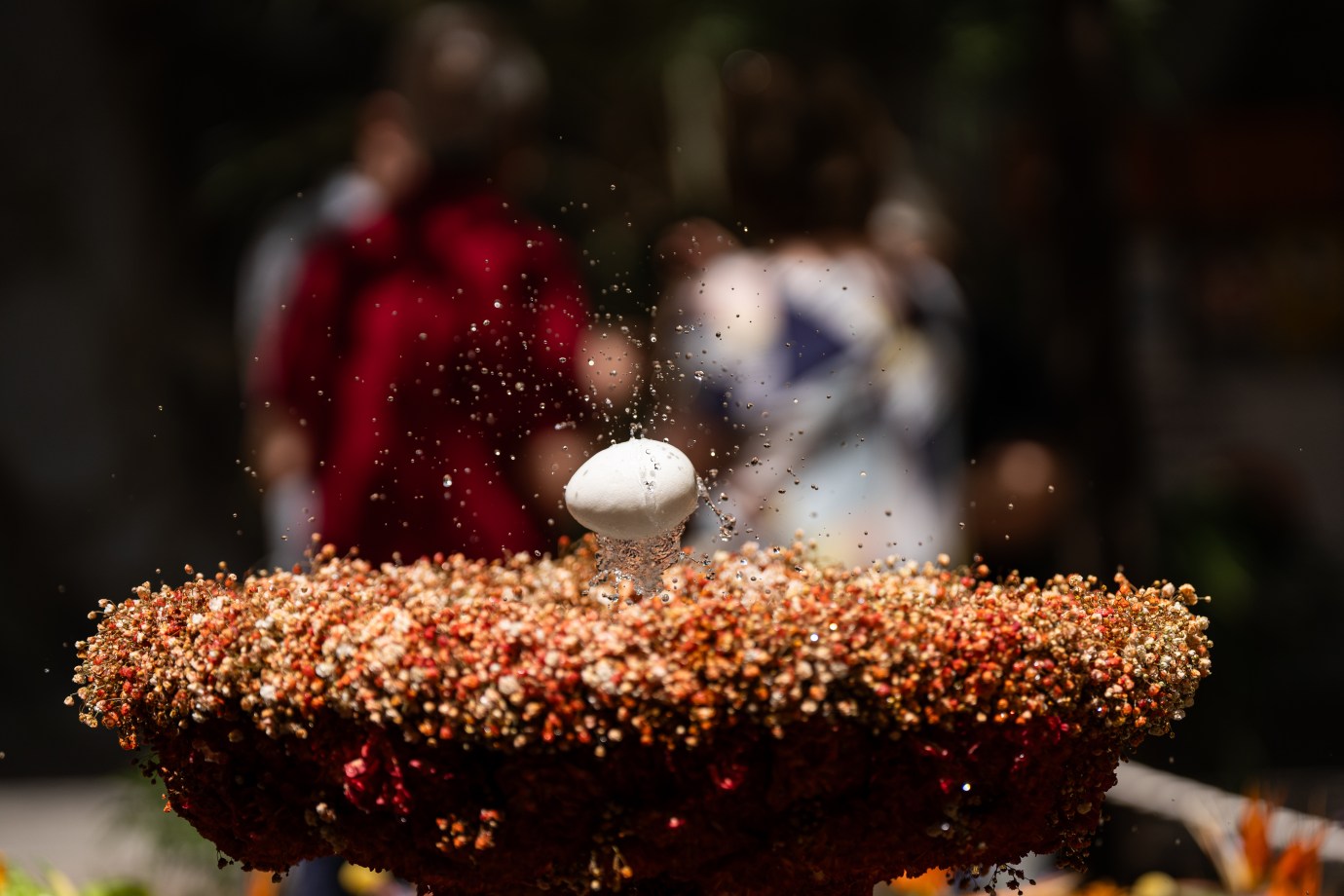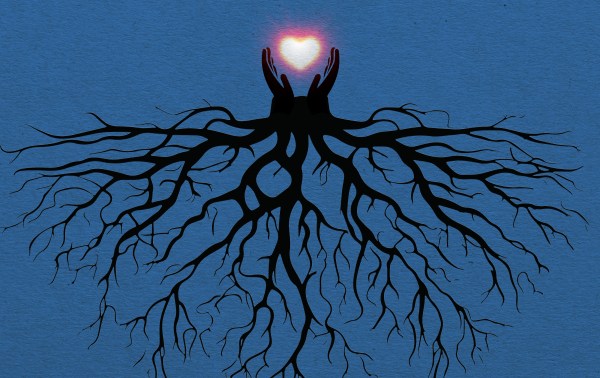Hi and happy Sunday.
If you listened to Thursday’s Remnant episode, you heard Jonah Goldberg discuss the historical roots of liberalism (as in classical liberalism, not political progressivism)— including its relationship with Christianity—with Jeffrey Collins, a professor at the University of Florida’s Hamilton School of Classical and Civic Education.
Those arguing for postliberalism of one sort or another often do so in ways that strike at the heart of what most people care about, what Dispatch Contributing Writer Jake Meador calls “appetitive” in today’s Dispatch Faith essay. But arguments for classical liberalism can be too, he writes, and points to some classical Christian virtues as examples.
One housekeeping note: You might have noticed Evan Spear on today’s byline. Evan is one of our summer interns and will be helping me put together elements of the newsletter for the next several weeks. Welcome, Evan!
Get smart, serious, faithful Catholic news—delivered to your inbox!

Jake Meador: A Virtue-Centric Argument for Political Liberalism

For defenders of political liberalism there is perhaps no more pressing problem than this: How do you make a compelling case for liberalism in an era of ascendant strong gods? The idea of “strong gods” comes from the book Return of the Strong Gods by R. R. Reno, editor of the conservative ecumenical journal First Things.
By “strong gods” Reno means the kind of visceral or agonistic forces that can compel political or social action through deeper existential or even guttural appeals. The strong gods work not by chiefly targeting the intellect, but the appetites. The techno-utopianism of entrepreneur and activist Peter Thiel is a kind of strong god. The “don’t die” movement and its attendant love affair with AI, viewed as the means by which humanity “creates God” is another strong god. So is blood and soil, of course.
But strong gods are not an exclusively right-wing phenomenon: The worker’s revolution is a strong god of another kind, as is the promised inclusion and justice of the successor ideology or, as it is sometimes known, “wokeness.” After all, if everyone has a sacrosanct right to define their own concept of meaning and existence and the universe, as former Supreme Court Justice Anthony Kennedy once claimed, what political ambition could be higher and more important than securing that right to self-define for all people? If you wish to understand how the transgender revolution could happen, that is your answer: It was presented as the civil rights struggle of the 21st century, the battle to ensure that all people’s sacred rights are recognized and protected.
Set against these various appeals to glory or justice or belonging, the frequently technocratic and procedural arguments made by liberalism’s defenders can seem thin and bloodless in comparison, like offering LaCroix to a person looking for a good time when the vendor down the street is offering tequila. If one side is talking about belonging and justice while the other is making legalistic arguments about religious liberty, we shouldn’t be surprised at who wins. A similar dynamic applies on the right, as observers of the past 10 years should by now recognize: Donald Trump offered the promise of national greatness, a return to glory. His opponents, too often, have come back with bookish arguments about free trade or voting procedures. Usually those arguments are not wrong so much as they are ineffective because their proponents have not understood the terms of the debate. The structure of the argument, in which one side argues for thick goods that promise meaning and significance while the other sounds like an HR manager, stacks the deck against liberalism.
But can there be such a thing as “liberal strong gods?”
If the vision of liberalism is the one most commonly expressed during the Cold War era and its aftermath, the answer is a loud no. But perhaps we have failed in articulating a liberalism beyond the technocratic and procedural, one that actually makes positive arguments for the same sort of appetitive, existential lines as today’s illiberal strong gods.
Take John Locke—that popular whipping boy of postliberals everywhere—and his theory of labor and property. Locke’s critics have argued, indeed in a past life I myself argued, that Locke’s notion of the right to private property as coming from a person’s labor in the world—the mixing of their own labor with the world, in fact—creates an unaccountable vision of property and wealth that destroys the life of communities. The only way back to a thicker experience of common life, the argument goes, is if we reject Locke’s individualistic economics and replace them with something more communal in nature.
But this gets Locke almost entirely backwards. The point of this theory, for Locke, was not to insulate rich people from the claims of their neighbors. Rather, it was to insulate the rights of workers from the predations of the wealthy.
According to Locke, the person who hoarded wealth for themselves beyond what they needed “invaded his neighbour’s share, for he had no right, farther than his use called for … and [his property] might serve to afford him conveniences of life.” If the laborer secures a right to property through mixing their labor with the world, then that right means the wealthy have no standing or justification for exploiting workers. In other words, the Lockean liberal understanding of property does not enable capitalist excess. It actually rebukes the excesses of capitalism. If you are concerned about the capricious and cruel uses of wealth that so often define our world today, John Locke is not your enemy, but your ally. You can rebuke those genuine evils from within the liberal tradition. You do not need to abandon it as a whole in order to condemn greed and the hoarding of wealth.
As it is with Locke, so it is with much else belonging to liberalism that postliberals wrongfully dismiss, such as the virtue of tolerance. As a child of the ’90s, I am old enough to remember when “tolerance” was a much-praised virtue in American life. In the aftermath of the late 2010s and early 2020s, a time when many on both sides of America’s political divide seemed to believe that “error has no rights,” those appeals to tolerance can seem positively quaint. Today critics of tolerance allege that tolerating the vices or false beliefs of others inherently allows evil to exist in society unchallenged.
But this is nonsense. Tolerance is founded not on the idea that it is good that injustice be allowed, but rather on the idea that our own ability to define justice or goodness or truth is actually far more limited than many of us think. Tolerance is founded on the simple but essential form of intellectual modesty (and truthfulness!) that is willing to say, “but I could be wrong.” Tolerance flows from a recognition of our own fallibility as humans and an appropriate fear that we would act in the name of something we believe to be good only to discover, perhaps too late and after hurting others, that we were wrong. It is indeed one liberal virtue that we might call one of liberalism’s strong gods because it calls us to see glories and goodnesses that do not exist today but might one day come to fruition, if only we would bear with one another and patiently endure our disagreements as they exist amid our shared civic life. (This instinct to suspend judgment, or suspend our acting in certain ways on our judgments, is one that can be sourced from Scripture and church history, incidentally: Certainly Jesus’ parable of the wheat and the tares from Matthew 13 would encourage such behavior.)
We can continue this exercise in reclaiming liberal virtues quite easily and profitably. An obvious extension of the virtue of tolerance is the further virtue of mercy. Indeed, it is probable, as my friend Matthew Lee Anderson argued over a decade ago, that the only way of resolving our culture wars without dissolving our republic is to embrace mercy. Perhaps that is why a relief over the doors of my home state’s Capitol building proclaims that mercy is one of the “guardians of the law.”
As Trump continues to target both university students and universities themselves in transparently political ways intended to cripple or obliterate First Amendment rights, his defenders often claim that the American right is simply responding in kind to the previous illiberal abuses of the left. Yet even if one grants that argument, the underlying logic of such moves is the death of a trust-based civil society. In its place rises a purely punitive society, comprised of rival political blocs competing for power so that they can use it to punish or even destroy their enemies.
Ultimately, of course, no one wins in such a society because power never resides with one bloc permanently, and the weapons one side uses are adopted and intensified by the other. The only way of breaking this cycle and seeking to reestablish a trust-based public square is to practice mercy, to choose to withhold an arguably deserved punishment when given the chance to enact it.
This, of course, is why Shakespeare’s Portia extolled mercy’s virtues in a much-loved monologue in The Merchant of Venice. In it she claimed that mercy actually “becomes the throned monarch better than his crown,” because the crown simply connotes temporal power. But in practicing mercy, the monarch does not behave like an earthly ruler, but like God himself.
These should be the strong gods of liberalism, then: Do you want to be wise? Do you wish to be like God? Then practice tolerance. Be merciful.
But even here we have not exhausted the plausible appeals liberalism might make as it seeks to counter the agonistic claims of illiberal theories. For we can trace the appeals of tolerance and mercy back even further and deeper. It has now been broadly forgotten, but the first virtue any Christian theologians dedicated significant time to considering and writing on was not hope or faith or love or temperance, but patience, as Alan Kreider has documented at length. Patience offers a healthy and rich soil in which the appeals for mercy and toleration can grow and thrive. That’s because the argument of patience is simple: A human life is a long time. And if you believe in the eternality of the human soul, as have most human beings across time, then eternity is longer.
The great object of your decisions made today should not simply be “What will satisfy me now?” but rather: “What will shape me so that I will be healthy and joyful in 50 years … or in 1,000 years?” Patience justifies the practice of mercy and tolerance because it recognizes that we ourselves will change with time, as will our neighbors. So, it is wise and good to give people space and opportunity to change organically in response to love and care and the ordinary happenings of life, rather than seeking to impose stringent and exacting demands on them as part of some doomed project of political perfectionism.
This, then, is how to argue for liberalism in an age of strong gods and agonistic politics: Do you wish to be healthy and easily capable of giving and receiving love decades from now? Then be patient. Do you desire to be like God? Show mercy. If you do not believe in God, do you desire to be free from resentment, bitterness, and anger? Do you desire to be free from the negative control exerted on you by the person you struggle to forgive? Then you too should be merciful. Do you hope that you and your family will have the chance to grow naturally across time toward health and maturity and belonging? Then practice toleration.
The arguments for these liberal practices need not be constrained to proceduralist reasoning, nor must they be made in purely negative, fearful terms. They can be made on constructive grounds rooted in appeals to virtue and communal health.
If you desire a vision of life that isn’t driven by anger, fear, and anxiety, then the solution is not to adopt a political vision that will, you hope, smash your political opposites, as if they are the source of your mental distress. The answer to your political anxiety is, at least partially, to adopt the liberal virtues and carry on your part in the great story of democratic liberalism that our nation has been telling for centuries.
Quick Questions
Kelsey Dallas joined our sister publication, SCOTUSblog, as managing editor last week. But before that, she spent 11 years covering religion (and some other beats) for Deseret News. And before that, she earned a Master of Arts in religion from Yale Divinity School. So I thought Kelsey would have some interesting perspectives on faith and religion in the public square. My questions to her are in bold.
What are the most challenging religion stories to cover? Why?
For me, the most challenging religion stories to tell are the ones involving unfamiliar or misunderstood beliefs. It was difficult, for example, to explain why some people of faith, including some who otherwise respected gathering restrictions, felt they had to meet in-person to pray or take the Eucharist during the early days of the COVID-19 pandemic, when so many others were content to take part in virtual services and use the bread in their pantry as Communion. It gets even more complicated when people within a faith interpret the same teaching in multiple ways.
What’s a common misconception about how religion and faith influence broader society or the news cycle?
That personal faith always leads to more conservative views, whether in the realm of politics or family life. Many Americans overlook or deny the existence of people of faith who identify as Democrats and of religious groups that advocate for liberal issues, like expanding access to abortion. You should have seen the emails I got anytime I wrote about the religious backgrounds of Democratic presidential candidates.
What religion/faith stories or trends do we (the media, and media consumers) make too much of or commonly misunderstand?
We shouldn’t get so riled up when a faith leader or member of a faith group confirms support for one of their religion’s core teachings, even when that teaching is controversial in society as a whole. For example, I don’t think we need as many headlines about the pope speaking out against abortion or saying that marriage should be between one man and one woman.
Why leave religion reporting for SCOTUSblog (not that SCOTUSblog isn’t a wonderful publication to work for!)?
The short answer is I was worried I was burning out. I still loved following religion news and writing religion stories, but I would go into each day focused on completing my to-do list instead of being excited about learning something new. I worried I was losing the part of myself that was genuinely delighted by studying religion long before I got a paycheck for it. When the opportunity at SCOTUSblog arrived, which will allow me to still write a bit on religion and especially religious freedom, it felt like the perfect move.
What were some of your biggest surprises covering faith/religion?
I was surprised to discover that my favorite religion stories were actually about religion and something else. Religion and sports. Religion and reality TV. Religion and the Supreme Court. That last intersection led me to this new job.
More Sunday Reads
- Ten years ago, white supremacist Dylann Roof killed nine people at Emanuel African Methodist Episcopal Church in Charleston, South Carolina. In Christianity Today, Haleluya Hadero profiles Pastor Chris Singleton—whose mother was murdered that night—and his message of hope, unity and forgiveness. “The goal, Singleton likes to say, is to be the opposite of his mother’s killer. He speaks often of eradicating racism and respecting people’s differences—of love and unity, though he understands unity must be appealed to, not demanded. Reaching one person who might otherwise be the next Roof, he told me, would make the whole project a success. Singleton’s message is not a comprehensive solution to racial injustice in America, as he freely acknowledges. It’s a way to grab on to hope in the face of harsh winds, a real and raw demonstration of the Holy Spirit working in the lives of people despite unimaginable pain.”
- The Israel-Hamas conflict has become a delicate topic for young students in Jewish religious schools, like the one at Temple Shaaray Tefila on the Upper East Side of Manhattan. For the Jewish Telegraphic Agency, Bethany Karlinsky explores how these schools have increasingly relied on high school-age teaching assistants—like Greer Silberbush—to gently introduce their students to the topic. “Silberbush initially found that her 2nd grade students ‘didn’t really know what the situation was about,’ she said, referring to Israel’s war with Hamas. ‘But a lot of the adults in their lives were trying to talk about it. So it was a little bit uncomfortable.’ In particular, Silberbush remembers a student flipping through a prayer book during music class, and fixating on a map of Israel. The student ‘pointed to a map of Israel and said “Oh my dad is fighting here right now.”’ The rest of the class went quiet while he asked questions about the war. ‘We had to explain the situation while making sure that nobody was upset and understood it clearly, because the kids are still 8 years old,’ said Silberbush.”
Religion in an Image











Please note that we at The Dispatch hold ourselves, our work, and our commenters to a higher standard than other places on the internet. We welcome comments that foster genuine debate or discussion—including comments critical of us or our work—but responses that include ad hominem attacks on fellow Dispatch members or are intended to stoke fear and anger may be moderated.
With your membership, you only have the ability to comment on The Morning Dispatch articles. Consider upgrading to join the conversation everywhere.